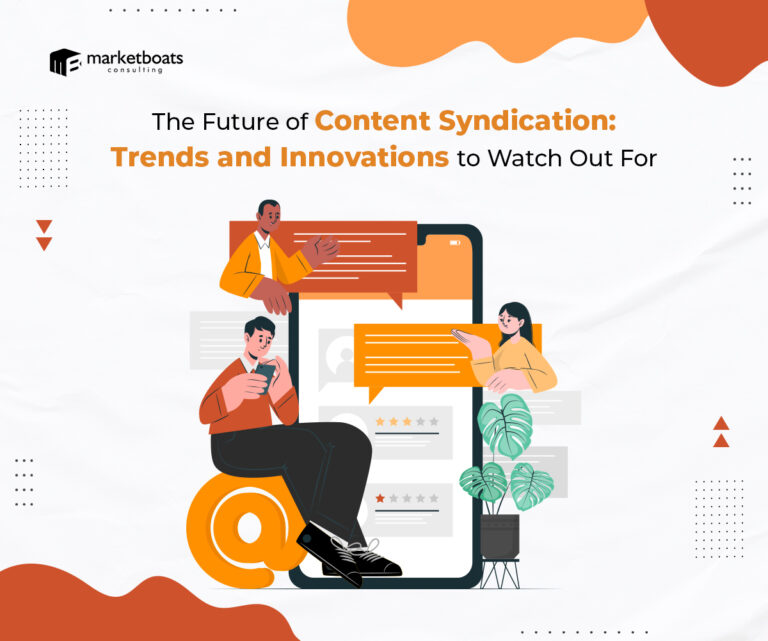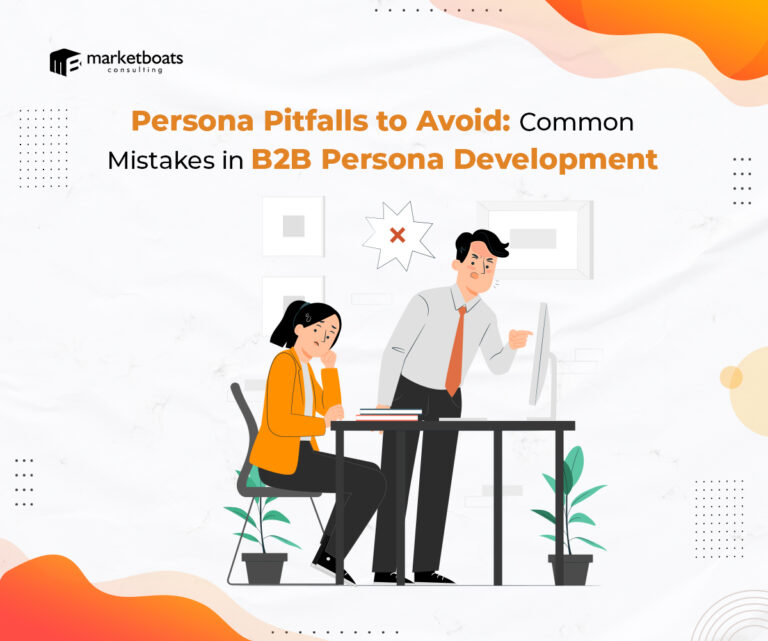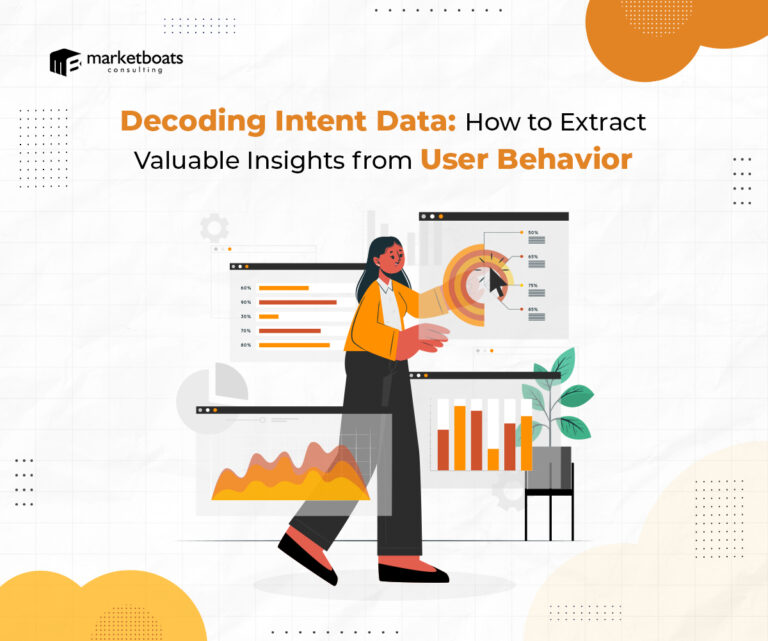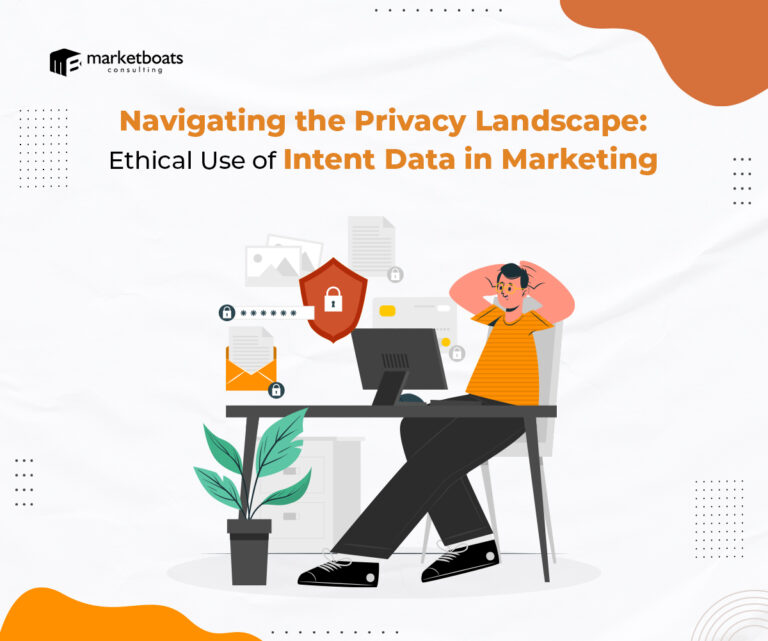Gone are the days when traditional marketing strategies were enough to attract and retain customers. According to a McKinsey survey, approximately 76% of consumers emphasize the importance of personalized communication when selecting a brand. Furthermore, 78% reported that such personalization significantly increases their likelihood of making repeat purchases from the same brand.
SaaS marketing has evolved into a nuanced, data-centric paradigm emphasizing the creation of tailored customer experiences. This shift isn’t just a trend; it’s a way to stand out in a crowded market, made easier by new SaaS marketing technologies that help with customization.
With technological advancements occurring at an unprecedented pace, keeping up with the latest developments is essential. You can use advanced SaaS marketing tactics to uncover emerging trends and innovations redefining the industry.
So, what is the future of SaaS marketing? Let’s explore!
SaaS: Beyond Technology to Transformative Business Model
SaaS transcends traditional technology offerings to revolutionize business models, particularly through the simplification of marketing strategies. Its subscription-based structure inherently encourages long-term customer relationships, as opposed to the one-off sales typical in product-centric businesses. This model allows for a steady revenue stream and presents unique opportunities for engagement and feedback collection, enabling businesses to swiftly adapt and improve their offerings.
Additionally, the cloud-based nature of SaaS products demystifies global outreach, making it easier for companies to access new markets without the logistical nightmares of physical distribution. Furthermore, the data-driven insights provided by SaaS platforms empower businesses with actionable intelligence to tailor marketing strategies, enhance customer experiences, and ultimately, drive growth.
Top SaaS Emerging Trends and Technologies to Watch
In today’s fast-paced digital world, staying ahead of emerging SaaS marketing trends and technologies is vital for your business’s growth. Here’s a breakdown of the key trends to watch:
Artificial Intelligence and Machine Learning Integration
The integration of Artificial Intelligence (AI) and Machine Learning (ML) propels SaaS into an innovative future, revolutionizing how services are delivered, scaled, and personalized. According to a report by Gartner, by 2026, 80% of new SaaS businesses will be adept with generative AI capabilities.
AI and ML enable SaaS platforms to analyze vast amounts of data, uncovering patterns and insights that can lead to more informed decision-making, predictive analytics, and tailored customer experiences. This not only enhances user satisfaction but also drives operational efficiency and agility, allowing SaaS companies to stay competitive in a rapidly evolving digital landscape. AI-driven automation can significantly reduce manual tasks, freeing up valuable resources and enabling companies to focus on strategic initiatives.
Multi-Cloud Environments
More businesses are using multiple cloud services to stay agile, resilient, and scalable. The State of the Cloud Report shows that 92% of enterprises have a multi-cloud strategy, mixing services like AWS for computing, Google Cloud for data analytics, and Azure for integration. This mix helps manage risks, like avoiding downtime by not relying on a single cloud. It also boosts performance and customer experience by keeping services close to users.
Additionally, using multiple clouds drives SaaS marketing innovation by providing various tools for development, analytics, and AI. Yet, managing multiple clouds can be complex, needing careful planning and tools for security and integration.
Vertical SaaS
Vertical SaaS is set to transform the future of SaaS marketing by focusing on specialized industries like healthcare and logistics. Unlike generic software, vertical SaaS offers tailor-made features for specific sectors, leading to better customization, cost savings, and stronger industry alignment. Its growth is driven by adaptability to client demands, resulting in more targeted solutions, lower costs to attract customers, and numerous benefits, including industry-specific data insights, pre-set performance metrics, and enhanced data governance.
This emerging SaaS marketing trend not only promises high value for businesses by meeting their unique needs but also opens doors for new niche solutions, raising competition and innovation. With 89% of leaders seeing vertical SaaS as the future and a post-pandemic increase in online business, expect to see a surge in these specialized tools backed by focused investment in the future.
Collaborative and Integrated Ecosystems
The State of API Integration report highlights a pivotal trend: 83% of businesses prefer integration capabilities essential when choosing a SaaS provider. This signifies a shift towards valuing ecosystems of interoperable software solutions over standalone applications.
SaaS companies are adapting by focusing on easing the integration of different software tools, aiming for a seamless digital experience that enhances productivity and simplifies workflows. In today’s digital landscape, dominated by SaaS marketing technologies, the power to seamlessly integrate data from diverse platforms and dismantle operational barriers marks a pivotal shift.
Data-as-a-Service (DaaS)
In recent times, businesses, big and small, have turned to data to shape their most crucial decisions. The pandemic reshaped how we view data, making it not just beneficial but essential. However, managing data in-house has become outdated and risky. This brings us to Data-as-a-Service (DaaS), which is gaining traction as an emerging SaaS marketing trend. DaaS simplifies data management by handling collection, storage, integration, and analysis in the cloud.
This change helps businesses make faster decisions and improves data accuracy, all while cutting costs and setup time for data management tools. DaaS also offers secure access to data from anywhere, a boon during the pandemic’s shift to remote work. The future of DaaS looks promising, with innovations aimed at enhancing data efficiency and security.
Migration to PaaS
In the future of SaaS marketing, the focus for the SaaS industry is on both keeping current customers and attracting new ones. A major trend is the shift towards PaaS (Platform as a Service), allowing businesses to enhance their services with custom apps.
Such a move is particularly beneficial for fast-growing startups, providing them with the tools needed for rapid expansion, as the case study of Deliveroo and its use of AWS to broaden its service area shows.
The transition to PaaS offers notable benefits, including improved agility, making it easier for businesses to innovate; scalability, allowing for easy growth; and better security through automatic updates. This strategy, already adopted by companies like Salesforce and Box, helps maintain their position in the market and is becoming increasingly popular.
Enhanced Security Measures
In response to the increasing unease among users regarding their data security, SaaS providers are moving towards incorporating more stringent security protocols into their services. This growing awareness among users about their data’s safety requires SaaS applications to implement comprehensive security features rigorously. Advanced encryption standards, along with stringent multi-factor authentication processes, are sure to become the norm rather than the exception.
With the advanced automation in SaaS marketing, businesses are also starting to work on finding and stopping security threats before they happen, instead of just reacting after the fact. Besides these technical steps, respecting users’ privacy and following the law’s changing rules about data protection are also key. These businesses are expected to take these issues seriously, making sure that user data is not only safe from attacks but also handled openly, legally, and with respect for privacy.
Edge Computing Integration
Edge computing represents a significant shift in how data processing and storage are approached by moving these capabilities closer to where the data is generated. This advancement is especially crucial in applications requiring real-time decision-making, such as autonomous vehicle navigation, smart metering in utilities, and enhancing consumer experience in smart retail environments.
For SaaS companies, this presents an opportunity to significantly improve the performance and responsiveness of their applications. By analyzing data where it’s generated and making immediate decisions, edge computing facilitates a faster, more efficient service delivery. This decentralization of computing resources not only reduces latency but also alleviates the load on central data centers, leading to more scalable and resilient SaaS solutions. In the places where milliseconds matter, the integration of edge computing into SaaS offerings can be the difference between success and failure.
Subscription Model Evolution
This shift towards more flexible pricing strategies reflects a broader trend in customer demand for transparency and adaptability in software investment. The adoption of models like consumption-based pricing or outcome-based pricing empowers businesses to optimize their software expenditures, ensuring they only pay for the resources they use or the outcomes they achieve. For SaaS providers, this evolution poses an opportunity to differentiate themselves in a competitive market by offering customizable solutions that cater to the unique needs of each customer, potentially leading to increased customer satisfaction and loyalty.
Sustainability and Green Computing
Modern computing is using more power these days. Things like digital currencies and artificial intelligence might make them use even more energy. With the rise of environmental awareness, the SaaS sector is shifting focus towards sustainable practices. Implementing green computing, such as utilizing energy-efficient data centers and striving for lower carbon outputs, is becoming a key priority in the future of SaaS marketing. There’s a growing demand among users for greener options, prompting SaaS companies to integrate practices that are more aligned with environmental conservation.
Wrapping Up
The future of SaaS marketing lies in adapting to and anticipating customer needs, leveraging new technologies, and remaining flexible in an ever-changing digital landscape. By keeping your finger on the pulse of these emerging trends and integrating them into your SaaS marketing strategies, you ensure that your business remains competitive and future-ready.
Need assistance in optimizing your SaaS marketing operations? Reach out to Marketboats!
Our team of growth experts, boasting 25 years of collective experience, is ready to engage with you. We offer industry insights and tailored recommendations on the most effective strategies to propel growth for your business.
Connect with us to start your transformational growth journey today!





